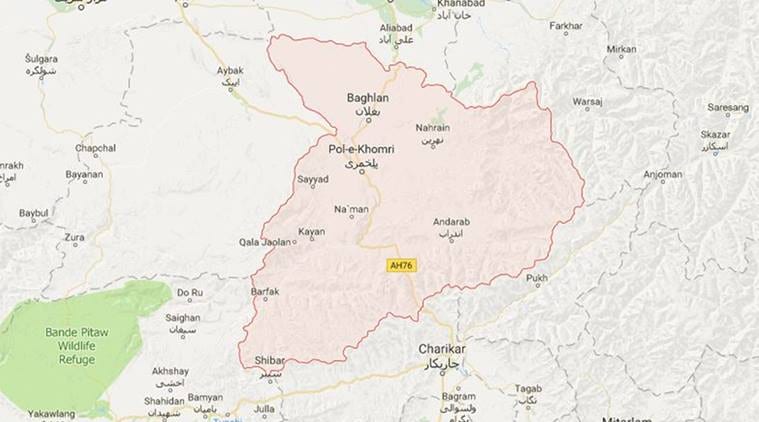 Afghan Foreign Minister Salahuddin Rabbani is learnt to have spoken to External Affairs Minister Sushma Swaraj and briefed her on the efforts being made to rescue the Indians. (AP Photo/Representational)
Afghan Foreign Minister Salahuddin Rabbani is learnt to have spoken to External Affairs Minister Sushma Swaraj and briefed her on the efforts being made to rescue the Indians. (AP Photo/Representational)
SEVEN INDIANS working with Indian power company KEC International were abducted by suspected Taliban gunmen in northern Baghlan province of Afghanistan on Sunday.
While no group has claimed responsibility so far, TOLOnews, a news channel in Afghanistan, quoted Baghlan Governor Abdulhai Nemati as saying that a Taliban group was behind the abduction. Nemati was quoted as saying that Afghan authorities had spoken with the Taliban group, via local people, and had been told that the KEC employees had been mistaken for government staff.
Confirming the abduction, Ministry of External Affairs’ official spokesperson Raveesh Kumar said, “We are aware of the abduction of Indian nationals from Baghlan province in Afghanistan. We are in contact with the Afghan authorities and further details are being ascertained.”
Afghan Foreign Minister Salahuddin Rabbani is learnt to have spoken to External Affairs Minister Sushma Swaraj and briefed her on the efforts being made to rescue the Indians.
 The province falls in the northern part of Afghanistan. (Source: Google Maps)
The province falls in the northern part of Afghanistan. (Source: Google Maps)
Harsh Goenka, chairman of RPG Enterprises, the parent company of KEC, tweeted: “Request @SushmaSwaraj and Ministry of External Affairs to help rescue 7 of our managers from the kidnapping in Afghanistan. #KEC.”
According to local reports, the KEC employees were abducted by armed men in Bagh-e-Shamal village of the provincial capital Pul-e-Khomri, while they were travelling to the area where KEC has a contract to operate an electricity sub-station. Nemati told TOLOnews that the Taliban group had moved the KEC employees to Dand-e-Shahabuddin area of Pul-e-Khomri city. He said they were trying to secure their release through tribe elders and mediation.
This is the third case of abduction of Indians in Afghanistan in the last four years. In July 2016, Indian aid worker Judith D’Souza was rescued more than a month after she was kidnapped in Kabul.
In June 2014, Father Alexis Prem Kumar, a Roman Catholic priest from India, was abducted by unidentified gunmen in the Afghan city of Herat. He was released in February 2015.
Between 2003 and 2008, three Indians were kidnapped and released. However, two Indians were killed after they were abducted.
Maniappan Raman Kutty, an engineer working for Border Roads Organisation, was kidnapped with his Afghan driver and two Afghan bodyguards by the Taliban on November 19, 2005. The driver and two bodyguards were later released but Maniappan was found dead on November 23, 2005.
Kasula Suryanarayana, a telecommunications worker for Al-Moayed, was kidnapped with his Afghan driver by the Taliban on April 28, 2006. The driver was later released but Kasula was found beheaded on April 30, 2006.
KEC, a global infrastructure engineering, procurement and construction major, is one of the largest Indian companies in Afghanistan that is responsible for electricity supply in the country. In 2013, KEC signed a contract with the Afghanistan government for construction of 220 kV D/C transmission line from the existing 220 kV substation at Chimtala to the newly proposed 220 kV substation at Kabul South West (Arghandi).
This transmission line is meant to transport at least 180 MW electricity from Chimtala substation, which receives power from Pul-e-Khomri 220 kV substation, about 250 km north of Kabul (receiving the power primarily from Uzbekistan & Tajikistan) to the power-starved townships of Qala-e- Mohib, Chel Dakhtaran, south west of Kabul, an Afghan government statement had said.
Once this project and the substation at Arghandi is completed, electricity will be provided to 40,000 households and businesses in Qala-e-Mohib, Chel Dakhtaran. A 2008 estimate had said the project cost was around Rs 135 crore.